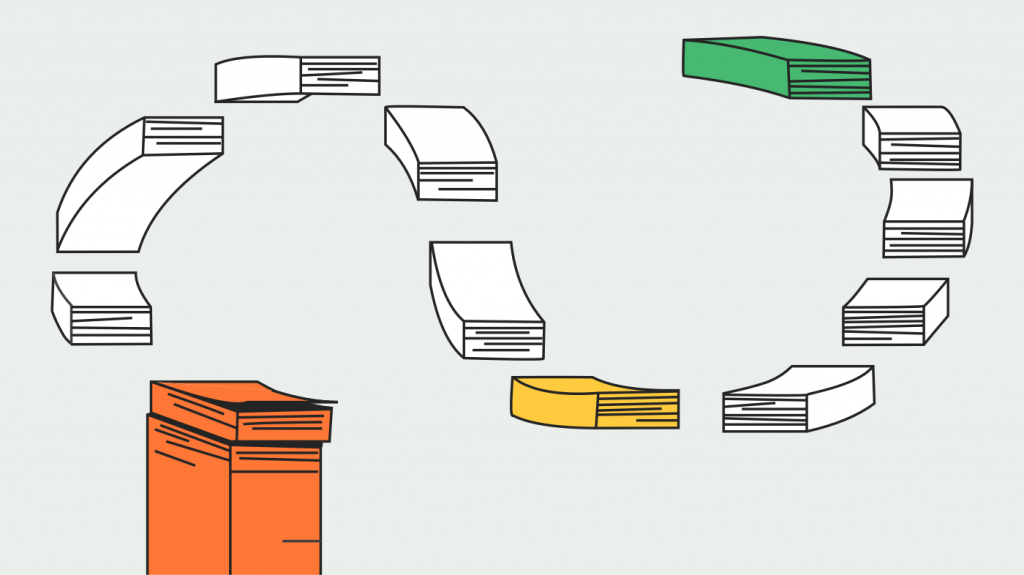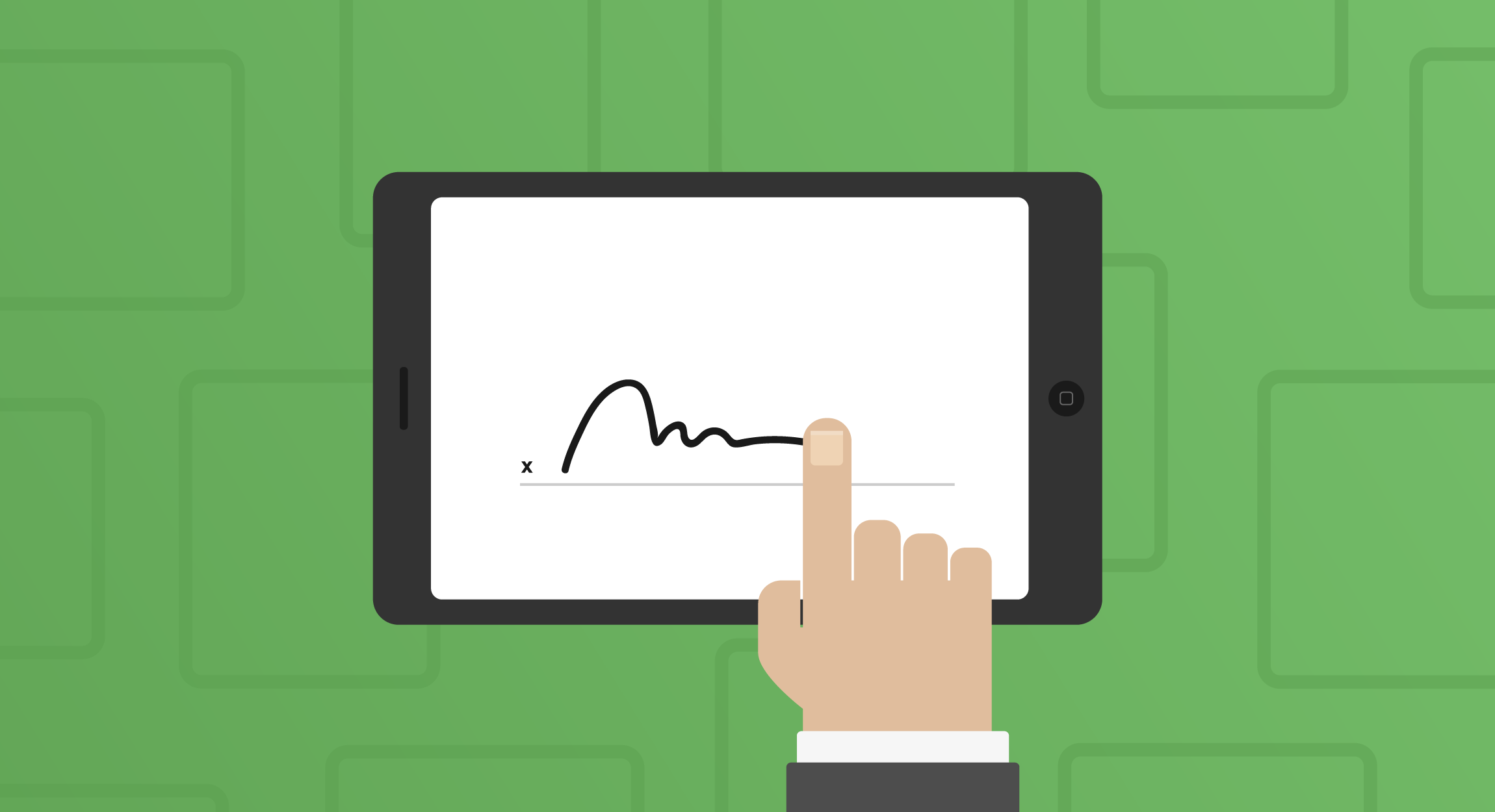Are you still using Sharepoint or similar software for contract management? You may be putting your business at risk and losing a lot of time and credibility in the process. A real contract management system not only boosts efficiency and reduces liability, it makes everything so much easier. It’s like sending your contracts on a vacation with a day-spa—the whole supply chain process is going to be a lot more zen.
If I give you fifty random contracts to find… how fast can you find them?
If you’re not using a robust contract management system, the answer to that question could be days, weeks, or worse—maybe you couldn’t find all of them. If that last part applies to your business, you’re not alone.
When we have had clients come to us for help with contract management, we’ve asked them this exact question. One client (we’re not naming names! There’s no shame in fixing a broken system.), they could only find sixteen out of fifty contracts over the course of three full days searching. Yikes. Talk about a costly timesink, especially when you think of this inefficient process accumulating over years of business.
“When am I honestly going to need to find fifty random contracts?” some ask. Let’s talk about when and why this matters to your business.
- You need to cancel a contract. You are not sure about the start or end dates.
- You have suppliers for duplicate or similar products.
- Your company gets involved in litigation regarding a supplier, perhaps due to faulty products that caused harm to your customers.
- Your line of business is in the healthcare industry. Not being able to pass this test effectively could jeopardize your business’s accreditation.
With proper contract management, this task should be as easy as searching Google. A few quick taps of the keyboard, and there are your contracts. Easy peasy, and so much less stress when a situation is already wearing on your nerves, such as in the case of a lawsuit. It’s one less thing for you to worry about, and can save massive amounts of time, money, and Tylenol over years of running a business.
Are all of them signed by both parties?
A contract that isn’t signed by both parties is no contract at all—it’s as enforceable as a scribbled-on burrito wrapper. Especially when you’re dealing with lots of different contractors who renew at different times of the year, it can be difficult to track who has signed what and sent it back without a good system supporting you.
Carrying contracts that aren’t signed by both parties is a huge risk to your business. We’re talking sub-par harmful products with no recourse, errors and ommissions insurance nightmares, unfortunate liabilities in the case of catastrophe. It can be legal chaos to find out, in a desperate moment for your business, that a contract was never signed, thus there’s nothing you can do. There was never an agreement at all, for most purposes.
A successful contract management system will ensure everyone you do business with has signed all necessary documents, so you’re never caught with your pants down. This brings us to our next point…
Do you use electronic signatures?
A startling number of businesses are still managing contracts like they were dropped in a cubicle in the early 90s. Faxing? It needs to be a thing of the past. And let’s toss out pen signatures too while we’re at it.
Let’s be honest, do you think your business would basically implode if we dropped your fax out the window?
Well, let’s have a lesson in gravity, because putting so much stock in an outdated, inefficient method of transmission is costing your business a lot of time and money as well as putting your business at risk.
Electronic signatures through applications like DocuSign are a reliable method of signing contracts in a way that boosts efficiency for you and your contractor while also resolving the issue of carrying contracts signed by only one party.
With e-signatures, contractors are shown step by step which places require signatures and initials throughout a contract, so there are no more missed steps. Aside from the fact that it is straightforward, nearly instant, and auditable, they also help in another way—reminders. Have you been waiting for two weeks on a signature? Let the platform automatically remind your client. It’s one less thing to pay your employees to manage and is likely to get that contract back signed faster than older methods. Plus, it’s easy to organize contracts that are already digitized. Bye, bye scanner. Enjoy the company of the fax machine.
Do you have a report that shows when all of your contracts expire?
Is it time to renew your contracts? Right now? Last week? If you’re like most businesses without a CMS, you have no idea.
Knowing when your contracts expire lets you be a step ahead. Unhappy with a supplier? You’ll probably need some time to search for a new one before you drop the old one. That means research, comparisons, time, and ultimately money. It’s not something you want to have to rush through.
A real contract management system will let you know which contracts expire 30 / 60 / 90 days in advance, so you have plenty of time to determine your most advantageous next move.
Can you quickly and easily keyword search?
Do you need to know which contractors you have supplying bed linens? Toilet paper? Are you among the buyers in the Great Glitter Conspiracy*? With a proper contract management system, you just need to do a simple text search to find exactly what you’re looking for.
Don’t settle for anything less than user-friendly, data-driven contract management that keeps you ahead of the curve instead of rustling papers and unjamming the fac machine way, way behind it.
About Premikati
Premikati is a woman-owned business of procurement experts providing best-in-class software to maximize your company’s ROI.
Our award-winning team has a 100% success rate implementing on-time and on-budget, due to our agility, leanness, operational experience, and the ability to tailor the transformation process from C-level to end user. (For more information, visit www.premikati.com)
*Spoiler alert: After much deliberating and searching among hordes of Redditors, the answer has been found. It’s the boating industry. Boat paint uses glitter. However, the intense secrecy surrounding glitter production and the surprising technological complexity of glitter creation makes it worth a look for the curious at heart.






